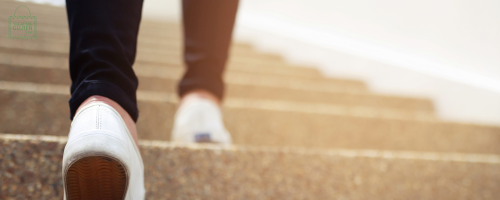Exercising in Ramadan

As Muslims around the world celebrate the holy month of Ramadan, you can face challenges in maintaining your fitness routine. Fasting from dawn to dusk requires careful planning to ensure that exercise is effective and safe. In this article, we will discover five essential tips to help you use your exercises during Ramadan with maximum effectiveness, while respecting the spiritual significance of this holy time.
Time your exercises wisely

One of the most important aspects of exercising during Ramadan is timing. With the fasting period that extends from sunrise to sunset; It is very important to set a schedule for your exercises. Consider exercising after your breakfast (Iftar) or before you start fasting (Suhoor) to ensure optimal energy levels. Light to moderate activities such as walking, flexible exercises, or yoga can be ideal options after iftar, while more intense exercises should be for the hours before suhoor.
Continuous hydration

Proper hydration is key to maintaining performance and preventing dehydration during your workouts during Ramadan. It is necessary to drink plenty of water during the evening hours after breakfast, especially before and after exercise. Electrolyte-rich drinks can help restore lost minerals and support hydration levels. Be alert for signs of dehydration such as thirst, dry mouth, or dark urine, and adjust your fluid intake accordingly.
Do moderate exercise

Listen to your body and exercise moderately during Ramadan. While staying active is important, pushing yourself to the limit while fasting can lead to fatigue and exhaustion. Adjust the intensity and duration of your exercises based on your energy levels and how you feel each day. Remember, consistency is key, so focusing on maintaining a regular exercise routine is better than focusing on reaching your maximum potential during this time.
Prioritize nutrition

Nutrition plays a crucial role in supporting your exercise and overall health during Ramadan. When planning your meals, focus on nutrient-dense foods that provide sustained energy. During Suhoor, include complex carbohydrates, plant proteins, and healthy fats to fuel your body for the fasting time. After breakfast, prioritize foods that aid recovery and restore energy stores, choosing natural, unrefined options where possible. Avoid sugary and processed foods, as they can cause crashes in energy levels and hinder your exercise goals.
Adapt your routine

Know that your body may need time to adapt to exercising while fasting. Start with light exercises and gradually increase the intensity of the exercises as you adapt to the demands of Ramadan. Listen for any signs of fatigue or discomfort and be prepared to adjust your routine accordingly. Consider alternative forms of exercise such as swimming or low-impact activities if you find high-intensity exercise difficult during Ramadan. Remember that your health should always come first, so prioritize taking care of yourself and listening to your body throughout Ramadan.
By following these five essential tips, you can maximize the effectiveness of your exercises during Ramadan, while respecting the spiritual importance of this holy month. With careful planning, moderation, and attention to hydration and nutrition, you can stay active and meet your fitness goals while observing Ramadan. Always remember to listen to your body, adapt your routine as necessary, and prioritize your health and well-being above all else. Ramadan Mubarak!




